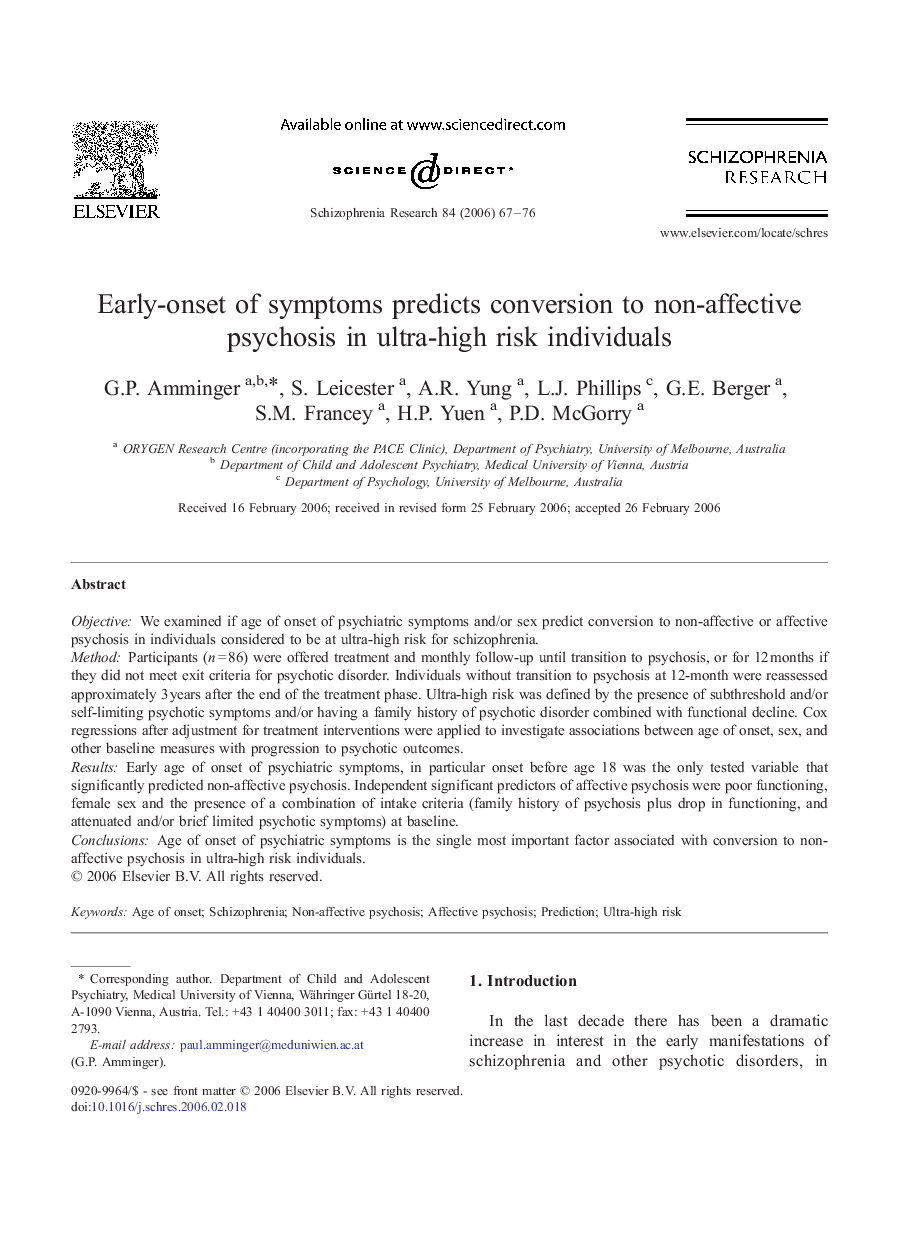| Article ID | Journal | Published Year | Pages | File Type |
|---|---|---|---|---|
| 340362 | Schizophrenia Research | 2006 | 10 Pages |
ObjectiveWe examined if age of onset of psychiatric symptoms and/or sex predict conversion to non-affective or affective psychosis in individuals considered to be at ultra-high risk for schizophrenia.MethodParticipants (n = 86) were offered treatment and monthly follow-up until transition to psychosis, or for 12 months if they did not meet exit criteria for psychotic disorder. Individuals without transition to psychosis at 12-month were reassessed approximately 3 years after the end of the treatment phase. Ultra-high risk was defined by the presence of subthreshold and/or self-limiting psychotic symptoms and/or having a family history of psychotic disorder combined with functional decline. Cox regressions after adjustment for treatment interventions were applied to investigate associations between age of onset, sex, and other baseline measures with progression to psychotic outcomes.ResultsEarly age of onset of psychiatric symptoms, in particular onset before age 18 was the only tested variable that significantly predicted non-affective psychosis. Independent significant predictors of affective psychosis were poor functioning, female sex and the presence of a combination of intake criteria (family history of psychosis plus drop in functioning, and attenuated and/or brief limited psychotic symptoms) at baseline.ConclusionsAge of onset of psychiatric symptoms is the single most important factor associated with conversion to non-affective psychosis in ultra-high risk individuals.
